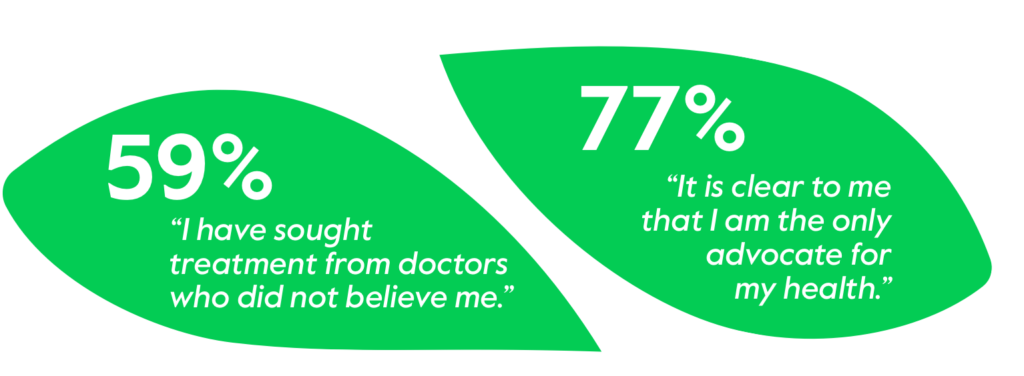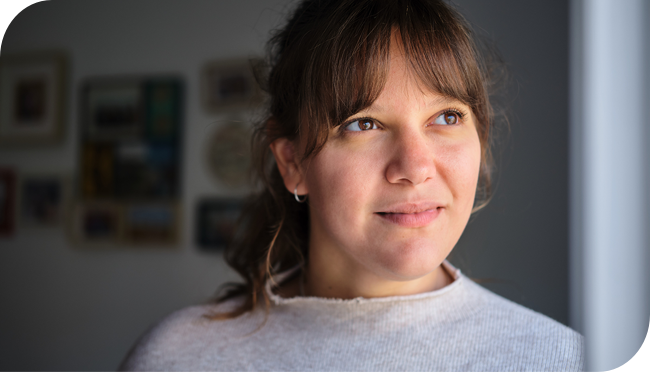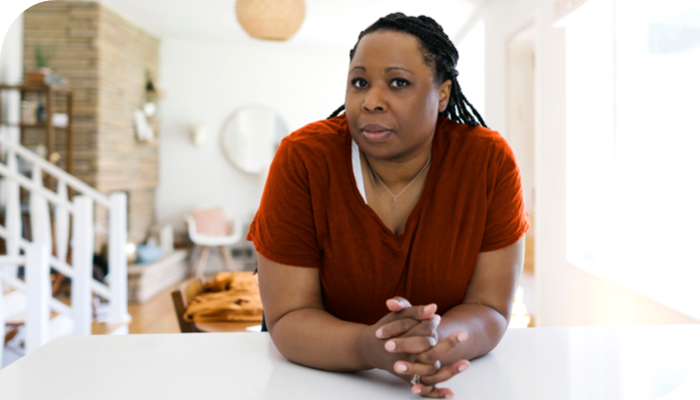How two women – one with PCOS and another with fibroids – advocated for their health.*
Your hormones are a complicated thing. They regulate everything from your sex drive to your period. When your hormones are out of balance, it can cause infertility and other health issues, including conditions such as fibroids and polycystic ovary syndrome (PCOS).
As if our bodies weren’t complicated enough, many women don’t always feel seen or heard when it comes to their health. In a recent study of millennial women,** most had this to say:

Elena shares her PCOS story.

Elena is a 30-something woman who recently discovered she has PCOS. She and her husband already have a five-year-old child, so it came as a surprise to her when she was having trouble conceiving.
I’m really frustrated at my past self. I was so certain that getting pregnant wouldn’t be a problem, I even asked my kid if he wanted a sibling. It’s heartbreaking that now he may have to wait or be an only child.”
One thing Elena did, right from the start, was to listen to her body and talk openly to her doctors about her symptoms.
I had other friends who had PCOS, which made me suspect I might have it too. I had to explain to my doctor that yes, my period was still happening but barely compared to what it used to be. I advocated for myself to get tested.”
Finally the diagnosis came, and her biggest fear was confirmed – she had PCOS. She now spends much of her time taking blood tests and seeing doctors, which is taking a toll on her emotional health – and her relationship. Talking about it has helped her feel not so alone.
At one point, I was getting tired of having intercourse just for the sake of procreating. I mean, I wish I could just have fun with my partner. I was also very hesitant to talk about what I was going through. It’s very personal, you know? Once you start telling other people about your experiences, you realize it’s not just you. We all have stuff.”
Elena recently reached out to a One Guide® personal guide. (She used the chat option on myCigna.com – so easy.) Now she has an advocate on her side to assist her with medications and other issues on her fertility journey. “There are definitely things that I could use support on,” she confessed.
Michelle on her fibroid journey

Michelle, also in her mid-30s, shared similar frustrations when she was experiencing extreme bleeding during her periods. She went to see her primary care provider (PCP) as well as an OB/GYN. But she had trouble getting them to believe just how serious her symptoms were.
I’m one of those people who stay on top of their health. So I knew something was wrong. The doctors told me to lose weight and get more active. My OB/GYN actually dismissed my symptoms, telling me women only lose about five tablespoons of blood during their period. It’s almost like they brush you off and don’t listen to you. But I knew something wasn’t right.”
Michelle had other friends who had fibroids, and talking about it with them helped her feel supported. She knew that African American/Black women are more prone to getting fibroids,** and she knew this was what she was experiencing. “Out of five of my friends, three of us have fibroids. One of them is a runner, and quite fit. Nobody told her to just lose weight.”
Once it was confirmed that I had fibroids, I tried to learn all I could about my condition. The doctors kept pushing for me to get a hysterectomy, but I was still young. I started to research different procedures, and I asked for procedures that weren’t even discussed as options. You have to advocate for yourself.”
Ultimately, after 15 years, Michelle did receive a hysterectomy. “It actually was a relief. No more doctor visits. No more tests.” After her surgery, Michelle received a call from a Cigna Healthcare coach. “They were so helpful. It was great to have someone call to check on me to see how I was doing and if I was healing well.”

Talk to your doctor about your risks and care options related to PCOS and fibroids. For questions about your benefits or to find in-network care, visit myCigna.com.
Fight the good fight.
Learn how Cigna Healthcare is helping to reduce health disparities and improve health outcomes.
*These stories are true; however, the names and images used here are for illustrative purposes only.
**Balzer D. “Mayo Clinic Minute: Black women and uterine fibroids.” Mayo Clinic. July 28, 2022.
https://newsnetwork.mayoclinic.org/discussion/mayo-clinic-minute-black-women-and-uterine-fibroids/



